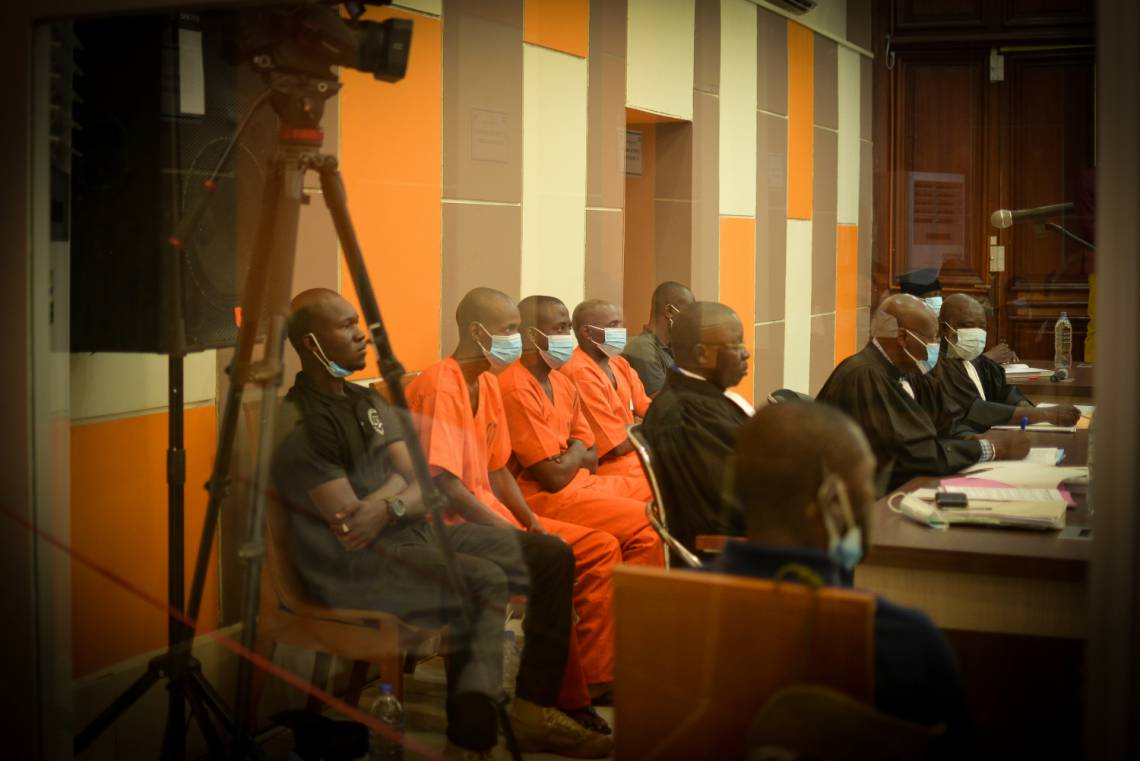Caroline Vuillemin, Executive Director of Fondation Hirondelle, talks about the Fondation's journalistic work to ensure that societies affected by crimes can understand the work of international and transitional justice.
What media work has Fondation Hirondelle done on international justice since it was set up in 1995?
Caroline Vuillemin: The history of Fondation Hirondelle is closely linked to the development of international justice, which has been ruling on serious human rights violations since the mid-1990s. Created in the aftermath of the genocide of Tutsis in Rwanda, the Fondation first set up a radio station in Bukavu (DR Congo) for the victims and displaced persons of the genocide. Then, in 1996, it launched the Hirondelle News agency in the building of the International Criminal Tribunal for Rwanda (ICTR) in Arusha (Tanzania) to cover the ICTR for the local media. Hirondelle News published dispatches in Swahili, Kinyarwanda, English and French, the four languages used by Rwandan victims and displaced persons. It has also trained dozens of African journalists in the specifics of international justice.
Fondation Hirondelle's statutes provide for it to intervene in countries experiencing serious crises, and its media outlets have publicised the international court processes in their countries: Radio Blue Sky in Kosovo (1999-2000), Radio Ndeke Luka in the Central African Republic (CAR), Radio Okapi and then Studio Hirondelle in the DRC. To make accessible international justice, which is both highly technical and geographically remote (The Hague in the Netherlands), we have made it a point of honour to provide information in the language of our listeners and to give a voice to the people who are the most affected. We also developed a partnership with the ICC when it was investigating crimes committed in DR Congo and the Central African Republic, so that it could speak on our radio stations, explain its work to as many people as possible and identify local journalists to work with.
Why has Fondation Hirondelle taken an interest in these issues?
Created in the aftermath of genocide, Fondation Hirondelle has put human dignity at the heart of its motto (“Media for peace and human dignity”) and its actions. After such crimes, there are few ways of restoring dignity to the victims and all those affected. Justice can help by naming the violence, acknowledging the crimes, convicting those most responsible and making reparations where appropriate. Journalism helps to publicise this work. It is the intermediary between an often highly complex judicial process and the public.
International justice has developed a lot in the last 30 years. What are Fondation Hirondelle's current priorities in this area?
Fondation Hirondelle's priority is to respond to the needs of the people. When the ICTR closed at the end of 2015, we asked ourselves what should be done with our accumulated media experience in international justice and human rights. So we created a new media outlet, Justice Info, which focuses not only on international criminal justice but also on the whole range of so-called "transitional justice" processes that are more centred on the notions of truth, remembrance, reparation and non-repetition. Unlike international tribunals, these processes enable people to engage in dialogue and build a shared future. Through media coverage, we make sure that people are involved in these processes. We provide the link.
This interview is taken from our 12th publication "Mediation" entitled "Making sense of international and transitional justice", available at this link.




